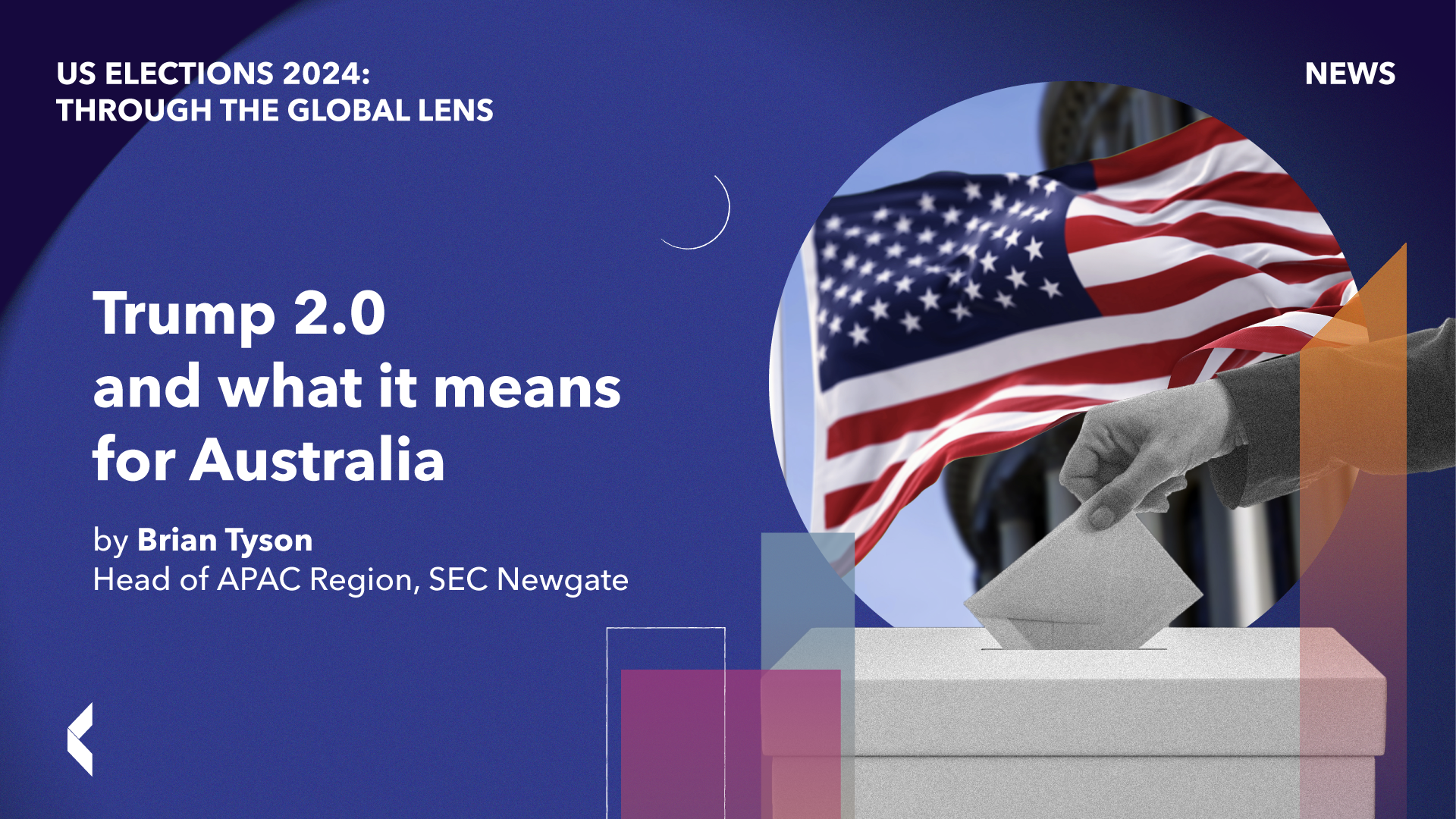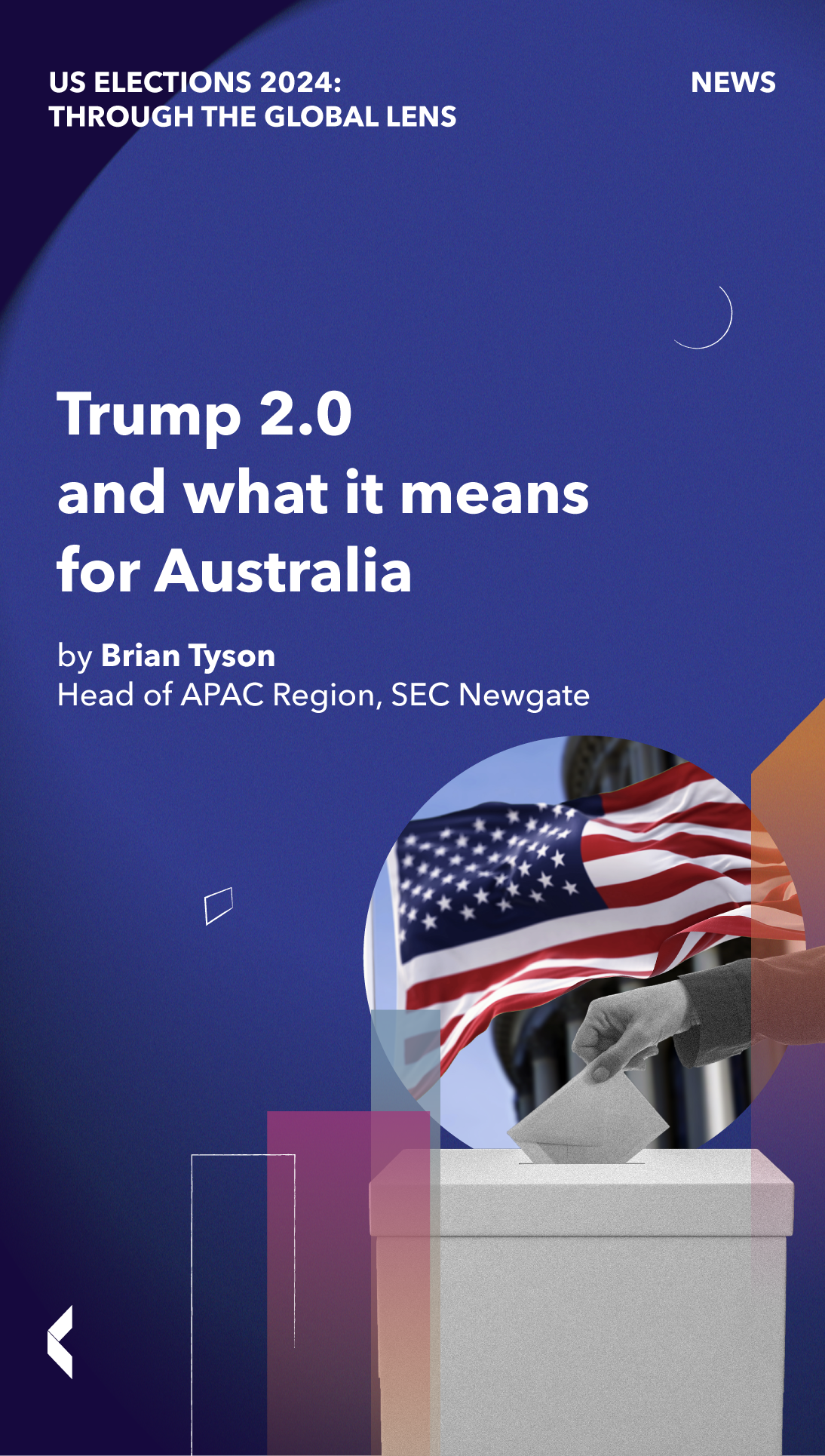About the Author
The difference this time with Trump 2.0 is that he has a mandate, and a big one.
Trump in 2024 has not only won both the electoral college and the popular vote, but the Republicans have also regained control of the Senate, and a likely majority in the House of Representatives. This gives Trump authority to implement a broad agenda of immigration reforms, tax cuts for companies and individuals, proposed radical tariff changes, and a withdrawal from the Paris Climate Change Agreement and other 2050 net zero agreements.
Trump’s win was propelled by an American electorate tired of falling living standards and inflation. They were seeking a fresh political agenda that restores the prosperity and certainty of the pre-pandemic world, and a rollback of perceived elite, identity politics. The issues of economy, cost of living, immigration and political leadership that won Trump office are largely the same issues being experienced in Australia heading into a Federal Election.
“It’s the economy, stupid.”
Voters turned back to former President Trump because they had lost faith in ruling Democrats, with more than two thirds of Americans saying the country was “headed in the wrong direction” in the lead up to the polls.
In Australia, SEC Newgate’s pre-US election research found that the overwhelming majority of people here preferred Kamala Harris, but thought Trump would win, and they were right.
What are the implications for Australia?
Trade
- Australia, an export-oriented trading nation, faces a world where there may be a return to protectionism, isolationism and a likely retreat from climate action that could dramatically ratchet up tensions in the Asia-Pacific region.
- Australia needs to prepare for a looming trade war that will put its newly thawed relationship with China under pressure, particularly if Trump proceeds with his threat to impose 60% tariffs on Chinese goods (and 100% on Chinese electric cars). Trump also plans to put 10% to 20% tariffs on all imported goods, in an attempt to draw offshore American manufacturers home, behind protectionist trade walls.
- 96% of Australia’s imports to the United States are currently tariff-free, under the 20-year-old free trade deal. While Trump’s position on tariffs is clearly a negotiation starting point, any retreat will require significant diplomatic efforts from the Australian Government.
- Under the new Trump administration, rules around crypto currency are expected to be loosened.
AUKUS
- The Albanese Government will be working to find a way to effectively work with a Trump White House, where the AUKUS nuclear submarine pact is on the table and relations on security, trade and climate change will change.
Domestic Politics
- Our domestic political agenda ahead of next year’s Federal Election will come under pressure with an electorate here as anxious as Americans for decisive leadership that delivers a restoration of pre-pandemic living standards.
- Australia may come under pressure to match Trump tax cuts and other measures to pump prime its economy. The global economic environment is radically re-shaping in the wake of Trump’s win and Australia may need to adjust accordingly.
Climate Change and Renewables
- Trump has committed to a major retreat on climate action from the US, and there is a possibility of cheap energy if the world is glutted with new supplies of oil, gas and coal under his “Drill, Baby, Drill” energy policies. This is likely to chill new investments in renewables until at least the picture on Trump’s energy policies becomes clearer.
- The new Trump Administration will likely curtail climate disclosures introduced under the Biden Administration.
Foreign Policy
- The new Trump Administration will also have a significant impact on the changing relationship with China, the conflict in the Middle East and whether the US continues to fund the aid in Ukraine against Russia.
“Tensions between the US and China under Trump 2.0 are likely to persist but it is unclear if they will worsen. However, China’s significant ongoing efforts to strengthen its diplomatic and trade relationships with the APAC region and Europe, as evidenced by its warming relations with Australia and courting of Eastern European nations, could well accelerate. Additionally, China has placed special emphasis on nurturing its “future industries”, and companies in this space are likely to pursue innovation with a reduced dependence on external technologies, especially in core areas like semiconductors and AI” say James Hill, Managing Partner at SEC Newgate Greater China, and Victoria Guo, Partner and Head of Shanghai.
Trump will not be inaugurated as President until early January, and significantly, will only serve one term, meaning he has every incentive to move very quickly and decisively. His initial agenda of tariffs and trade wars may turn out to be just bargaining positions, but Australia will need a very close eye on the Trump Presidency as there is a lot at stake for our nation and region.

